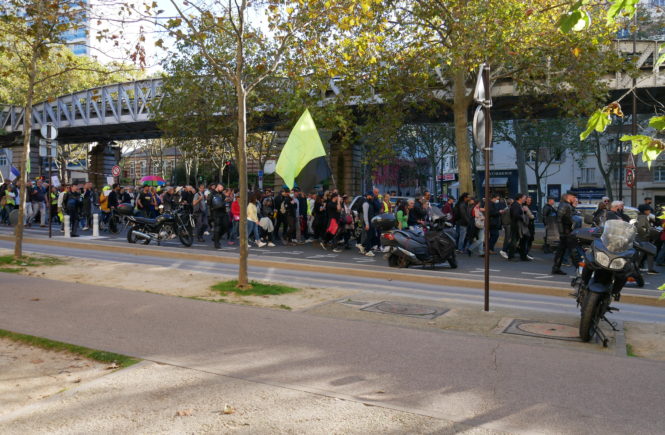Why, indeed, have we been beaten? Because of the unawareness of the public regarding the issue: ignorance is therefore the enemy that we have to fight and to defeat, and in this very battle our weapon must be the truth, the only exact and only fruitful principle of the inalienable and imprescriptible right that is the right to exchange.
The benefits of free competition in religious matters by Henri Basnage de Beauval
“When the Church has no enemies to fight, and sails on a calm sea, no one thinks of preparing for battle, nor of forestalling the pitfalls from which one might expect wreckage during the storm. The Church necessarily falls as soon as she speculates that she can no longer fall, the cause probably being the neglect that follows this claim, for one hardly thinks of digging deep into the matters of a religion that no one is challenging.”
Yves Guyot on women’s suffrage (1879)
What is the argument of opponents of women’s suffrage? Their incapacity, their feeble mind, their ignorance! They proclaim, by this very fact, that universal suffrage is a function. Men are sole responsible for regulating it. They establish themselves as the sovereign judges of the aptitudes of those who are to fulfill it. They claim to be the only ones capable of doing so; all of them are capable; and being the strongest, they exclude all women. After having banned half the nation from that role, they pompously declare that they have established universal suffrage. It is the oligarchy of sex substituted for the oligarchy of money.
French classical liberals and the issue of women’s rights
It is tempting for a liberty-minded historian to leave untouched the comforting presumption that French classical liberals, who championed freedom for the individual in the 17th, 18th and 19th centuries, must have upheld women’s rights too. Contemporary studies, while often obliterating the role of men in the development of feminist rhetoric, have found occasionally in the history of ideas some remarkable advocates well ahead of their times, and they have offered them as objects of uncritical admiration, in a sort of reconciliatory carnival. One easily concludes that feminism was burgeoning in every century, and that the rising tide was lifting up all boats. […]
The United States through the eyes of French classical liberalism
In the 18th and 19th centuries, French classical liberals have often seen the United States as an example and a model. Yet, if some have loved this country in a sort of long-distance relationship, others have actually made the travel and have written detail accounts. In this article, Benoît Malbranque examines the praises and criticisms put forward by authors such as Volney, Tocqueville or Gustave de Molinari, regarding the social and economic situation of the United States.
Frédéric Bastiat, Speech on “Disarmament, Taxes, and the Influence of Political Economy on the Peace Movement” (1849)
Frédéric Bastiat, Speech on “Disarmament, Taxes, and the Influence of Political Economy on the Peace Movement”, in Report of the proceedings of the second general Peace Congress, held in Paris on the 22nd, 23rd and 24th of august 1849, London, 1849, p. 49-52 M. Frederic Bastiat, member of the French National Assembly, spoke as follows:— Gentlemen, our excellent and learned colleague, M. Coquerel, spoke to us a little while since, of a cruel malady with which French society is afflicted, namely, skepticism. This malady is the fruit of our long dissensions, of our revolutions which have failed to bring about […]
Gustave de Molinari, The Economic and Socialist Conceptions of the Society of the Future (1899)
The political and economic organisation of society has, hitherto, varied according to the mental equipment of the individual, the risks of destruction threatening each society, the comparative development of production—the conditions of existence, in fine. These conditions have been profoundly modified, particularly during the last century, by the progress which has transformed the arts of production and destruction, until a political and economic organisation suitable to the past is no longer adapted to modern needs. This lack of adaptability may be considered as the first cause of modern socialist propaganda, since it has precipitated a crisis whose effects have chiefly fallen on the class which subsists on the product of its daily toil.
Yves Guyot, The causes of strikes (1893)
In a dry enumeration one cannot take into account the true causes of strikes, their justification, or the proportion between the risk to be run and the result to be obtained. We can only state certain facts, upon which we can base a rough estimate as to the psychology of strikes.
Frédéric Bastiat, A Petition From the Manufacturers of Candles (1845)
A Petition From the Manufacturers of Candles, inserted in the Sophismes économiques (1845). A Petition From the Manufacturers of Candles, Tapers, Lanterns, sticks, Street Lamps, Snuffers, and Extinguishers, and from Producers of Tallow, Oil, Resin, Alcohol, and Generally of Everything Connected with Lighting. To the Honourable Members of the Chamber of Deputies. Open letter to the French Parliament, originally published in 1845. Gentlemen: You are on the right track. You reject abstract theories and have little regard for abundance and low prices. You concern yourselves mainly with the fate of the producer. You wish to free him from foreign competition, […]
Turgot, Why the inequality in the division of property is inevitable (1766)
A man of greater strength, more laborious, more attentive about the future, would occupy more than a man of a contrary character. He, whose family is the most numerous having greater wants and more hands, extends his possessions further; this is a first cause of inequality.—Every piece of ground is not equally fertile; two men with the same extent of land, may reap a very different harvest; this is a second source of inequality. Property in descending from fathers to their children, divides into greater or less portions, according as the descendants are more or less numerous, and as one generation succeeds another, sometimes the inheritances again subdivide, and sometimes re-unite again by the extinction of some of the branches; this is a third source of inequality. The difference of knowledge, of activity, and, above all, the oeconomy of some, contrasted with the indolence, inaction, and dissipation of others, is a fourth principle of inequality, and the most powerful of all: the negligent and inattentive proprietor, who cultivates badly, who in a fruitful year consumes in frivolous things the whole of his superfluity, finds himself reduced on the least accident to request assistance from his more provident neighbour, and to live by borrowing.






